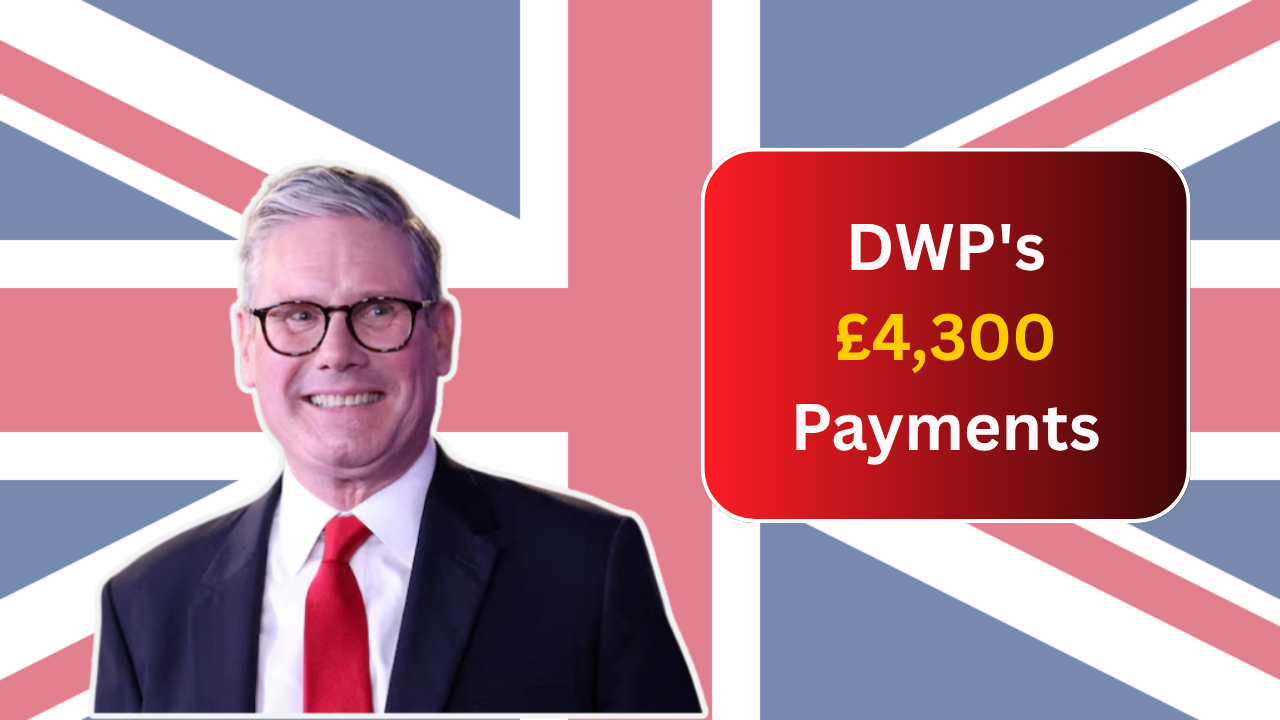The Department for Work and Pensions (DWP) has issued a crucial warning to state pensioners, with a notification that many will be receiving payments of up to £4,300 within the next 50 days.
This announcement comes as part of a significant update to the payment schedule for individuals receiving state pension and other related benefits.
While this is positive news for many recipients, it is important to understand how the process works, who will be eligible, and what these payments mean for pensioners.
In this article, we’ll break down the details, explain the implications, and provide tips on managing these upcoming payments.
What Is the DWP’s £4,300 Payment?
The £4,300 payment is part of the ongoing initiative by the UK government to support pensioners and those relying on state pension and other benefits.
This specific payment is part of a larger financial package aimed at supporting individuals in their later years who may be struggling to manage living costs.
These payments can vary based on a range of factors, such as the individual’s eligibility, the type of benefit they are receiving, and their specific circumstances.
However, it is expected that many pensioners will receive up to £4,300, which will be directly deposited into their bank accounts over the next 50 days.
For pensioners who are receiving a state pension or are entitled to additional financial assistance from the government, these payments could be a significant financial boost. However, recipients need to understand exactly what they are entitled to and how the process will unfold.
Who Is Eligible for the £4,300 Payment?
Not all pensioners will receive the full £4,300. The eligibility for this payment is based on several factors, including:
- Age and Pension Status: Individuals who are already receiving the state pension or are nearing eligibility may qualify for these payments.
- Benefit Status: Those who qualify for other DWP benefits, such as Pension Credit, Housing Benefit, and others related to financial support, may also be included in the payment schedule.
- Income Level: The payment amount can vary depending on the pensioner’s income. For those with higher earnings or other financial resources, the payment may be adjusted.
How and When Will the Payments Be Made?

The DWP has confirmed that the payments will be made within 50 days, and recipients can expect to see these funds land in their bank accounts during this period. For most people, the payment will be made directly to the bank account they have registered with the DWP.
The process of distributing these payments will be carried out in stages, and individuals need to monitor their bank accounts regularly to ensure they receive their payments promptly.
Some pensioners may also receive a notification letter or email from the DWP informing them of the expected payment, so it is a good idea to keep an eye on correspondence from the department.
It is also worth noting that while the payments are being processed over 50 days, delays may occur due to a range of factors, such as system updates or issues with individual payment processing. In the event of any delays, it is recommended that individuals contact the DWP for assistance.
What Should Pensioners Do to Prepare?
Pensioners are advised to prepare for the incoming payments by:
- Double-Check Eligibility: Make sure all the necessary information is updated with the DWP to avoid any delays or issues with the payment.
- Review Bank Details: Ensure that your bank account details with the DWP are correct. Incorrect or outdated information may lead to payment delays.
- Stay Informed: Keep up-to-date with any correspondence or updates from the DWP. They may send out important information or reminders regarding the payments, and it’s crucial to stay informed during this period.
- Check Payment Amount: Understand the amount you are entitled to. If you believe you should be receiving more than what is deposited, it’s important to contact the DWP to clarify the situation.
- Keep an Eye on Your Account: Payments will be made directly into your bank account, so it’s important to monitor your balance regularly to ensure the payment is processed correctly.
- Reach Out for Help: If you encounter any issues or have questions regarding your payment, contact the DWP for guidance and assistance. Their customer service team is available to support you throughout the process.
Potential Impact of the Payment on Pensioners
For many pensioners, the £4,300 payment will offer much-needed relief. With the rising cost of living and other financial pressures, this amount could make a significant difference in helping pensioners manage their daily expenses, healthcare needs, and other necessities.
However, there are concerns about the long-term impact of these payments. While the one-time payment is undoubtedly beneficial in the short term, some individuals worry about the sustainability of these financial support initiatives and whether they will be enough to address ongoing financial needs.
Additionally, for pensioners who may not meet the eligibility criteria for this payment, there may be a sense of disappointment or concern about what assistance they can expect going forward.
What Happens After the 50 Days?
Once the £4,300 payments have been processed, it is important to understand what happens next. While this payment may cover a significant portion of pensioners’ living expenses, it’s important for recipients to continue monitoring their financial situation.
If necessary, individuals should explore other financial assistance programs available through the DWP or local government resources.
Additionally, recipients should plan for how best to manage this lump sum. It might be helpful to set aside a portion of the payment for savings or future expenses, especially if pensioners anticipate a period of financial strain after the payments are made.
Conclusion
The DWP’s £4,300 payment to state pensioners is an important step in supporting those who rely on state pension and related benefits.
However, it’s important for pensioners to understand their eligibility, monitor their accounts closely, and take proactive steps to manage the payment. By staying informed and prepared, pensioners can make the most of this financial support.
As the 50-day payment window approaches, the DWP urges all pensioners to review their details, ensure eligibility, and contact them with any concerns or questions. The £4,300 payment will undoubtedly make a positive impact on many, but it is essential to approach it with careful planning and awareness.





